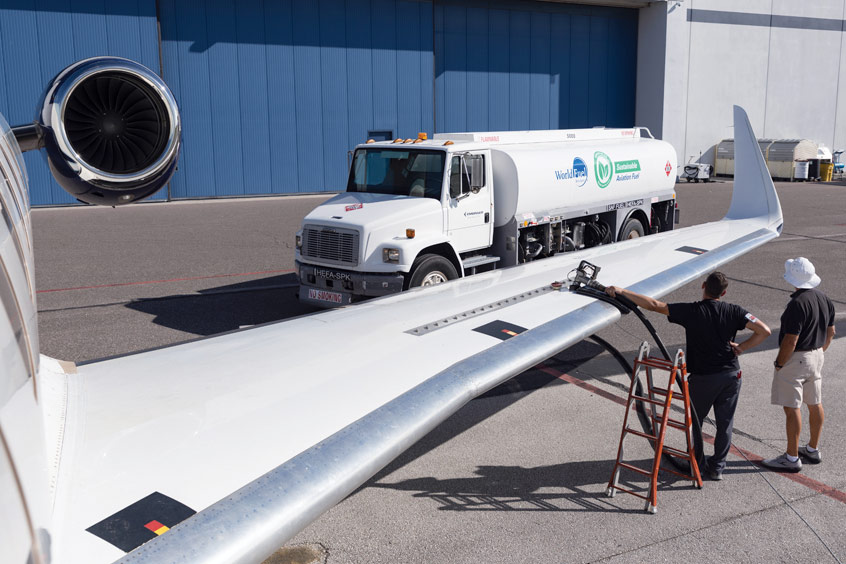Why visit ACE ’25?

Embraer has successfully tested the Phenom 300E and Praetor 600 on neat SAF. The tests, with one engine running on 100 per cent SAF, were performed at its Melbourne, Florida facility and provide significant insight into systems' performance when utilising blends up to 100 per cent SAF provided by World Fuel. The tests had collaboration of the engine and fuel system suppliers Honeywell Aerospace, Parker, Pratt & Whitney Canada and Safran.
"We are proud to have successfully flown the Phenom 300E and Praetor 600 on 100 per cent neat SAF, an important step as our operators are increasingly interested in and adopting this fuel," says Michael Amalfitano, Embraer Executive Jets president and CEO. "This achievement is an important milestone in our journey towards net-zero emissions by 2050 and demonstrates our commitment to sustainability, our customers and our stakeholders."
Embraer tested Honeywell's HTF7500 turbofan engine on its Praetor 600 using the neat SAF, the first time such fuel has been flown in Honeywell's business jet engines. The test provided new insights into how the engine performs when utilising a 100 per cent SAF formulation and successfully demonstrated that both HTF7500 engines performed equally flawlessly.
"We are pleased to be creating a more sustainable future for aviation with industry leaders like Embraer," says Dave Marinick, Honeywell president, engines and power systems. "This testing milestone with our engine demonstrates the viability of SAF for Embraer and the overall aviation industry as they work to meet carbon reduction commitments. Additionally, as we develop SAF solutions, we will be using these innovations in our own engines and APUs."
The use of SAF is a critical part of Embraer's commitment to sustainability, and this milestone demonstrates the company's dedication to adapting its current products to be as sustainable as possible and promoting its adoption among customers and in the industry. SAF is a crucial part of Embraer's targets of reaching carbon-neutral operations by 2040 and supporting the aerospace sector to achieve the net-zero emissions target by 2050.
Currently, all Embraer aircraft are approved to use a blend of up to 50 per cent SAF mixed with conventional jet fuel, based on ASTM International specifications. However, possible future specifications allowing for fuels containing up to 100 per cent SAF can maximise the potential for reducing emissions by utilising sustainable, non-fossil-based sources.
Embraer's commitment to sustainability is a core part of its business strategy, and the company is continuously exploring new ways to reduce its environmental impact. These Phenom 300 and Praetor 600 flights on neat SAF are significant milestones in these efforts, and Embraer will continue working toward a more sustainable future for the aviation industry through additional efforts such as the research and development of low- and zero-emission alternative propulsion systems, such as electrification, hybrid-electric, and hydrogen.
Honeywell offers a suite of technologies to create fuels with reduced or zero emissions. More than 40 Honeywell Ecofining licences have been issued to date to produce SAF, and roughly 60 per cent of Honeywell's 2022 new product research and development investment was directed toward ESG-oriented outcomes.